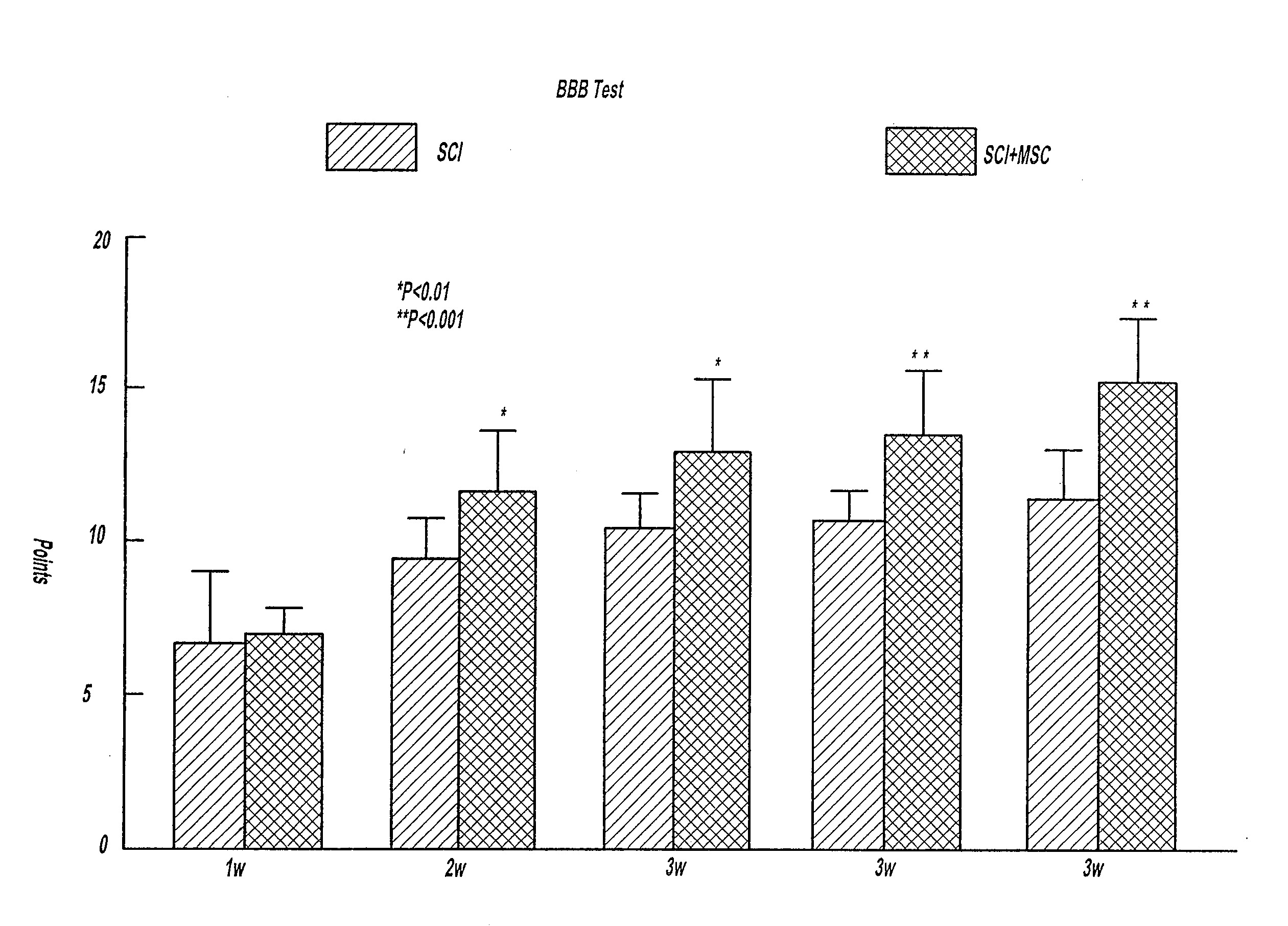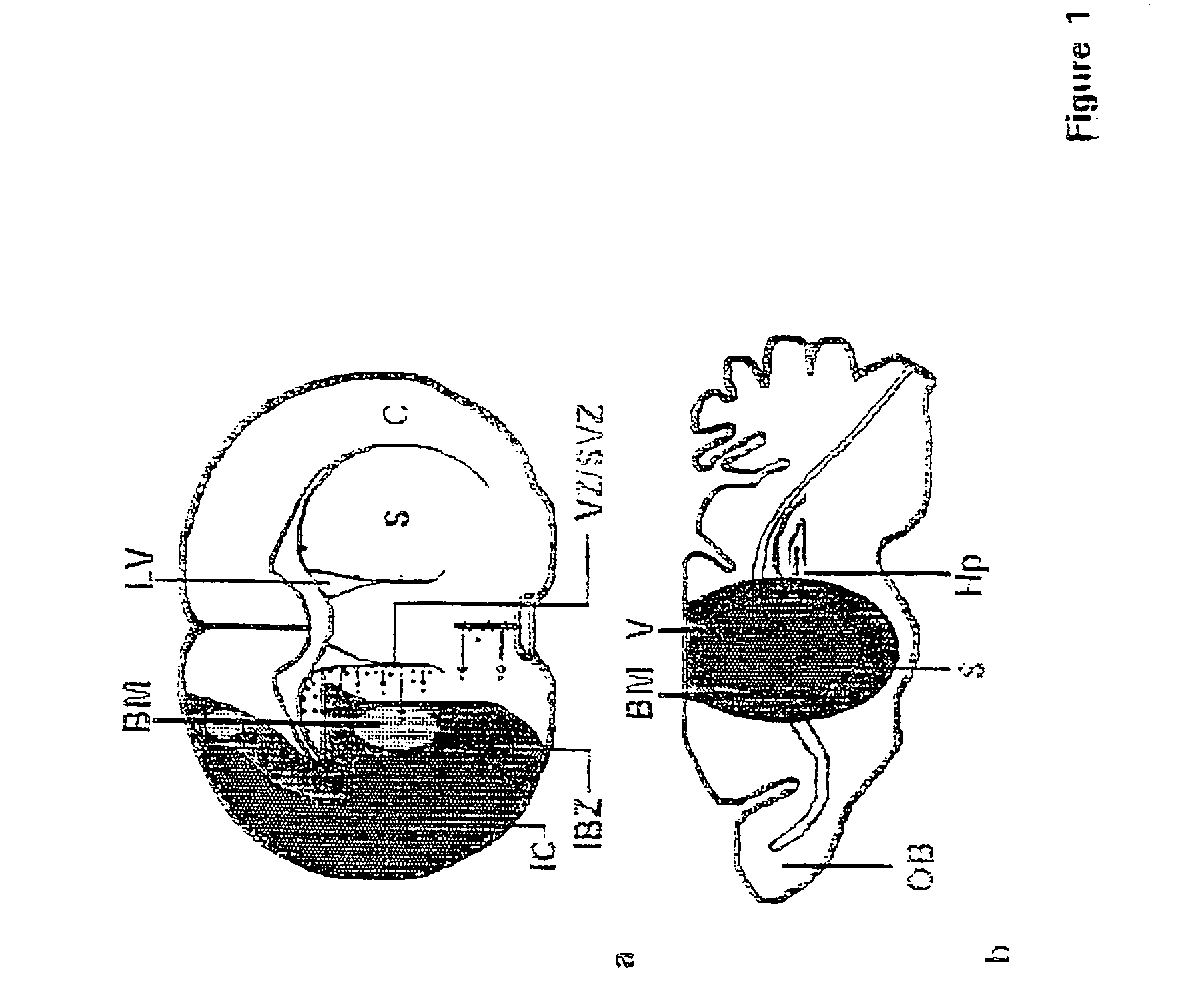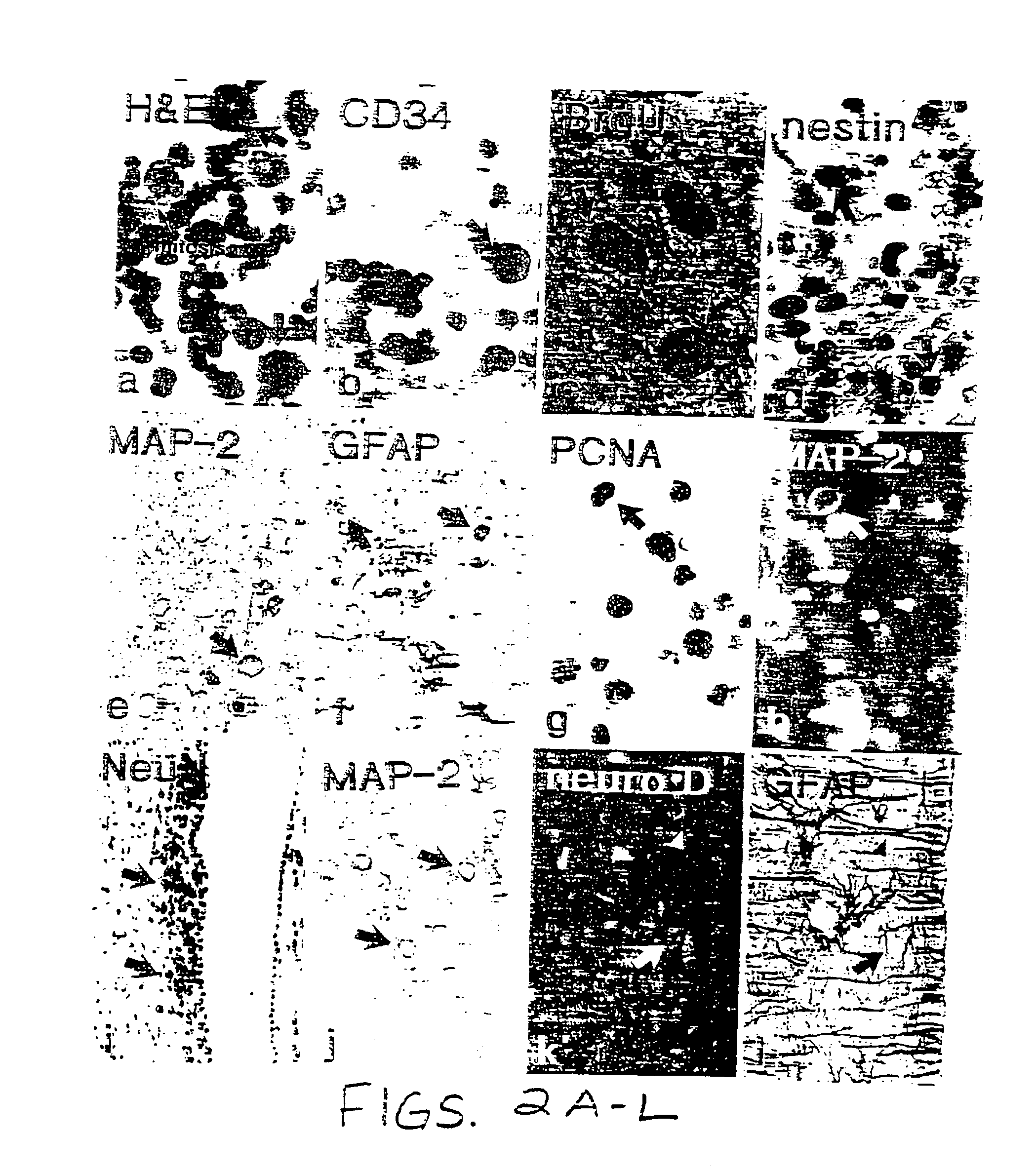Bone marrow transplantation for treatment of stroke
a bone marrow transplant and stroke technology, applied in the direction of biocide, drug composition, nervous disorder, etc., can solve the problems of neurodegenerative disease (parkinson's), neural injury (stroke, traumatic brain injury, spinal cord injury) and bone marrow cell differentiation, and achieve the effect of reducing functional deficits
- Summary
- Abstract
- Description
- Claims
- Application Information
AI Technical Summary
Benefits of technology
Problems solved by technology
Method used
Image
Examples
examples
Treatment of Stroke (RAT) with Intracerbral Transplantation of MSC
[0029]Description of intracerebral transplantation of bone marrow derived MSCs after cerebral ischemia in the rat: Adult male wistar rats were used in this study (n=28). Rats were subjected to middle cerebral artery occlusion for two hours using the intraluminal occlusion model. Experimental groups include: (Control) MCAo alone without MSC transplantation (n=8). Injection into the ischemic boundary zone (IBZ) at 24 hours after MCAo of Group 2. Phosphate buffered saline (n=4): Group 3. Non NGF cultured bone marrow MSCs (n=8); Group 4. NGF cultured MSCs (n=8). Approximately 4×104 cells in 10 μl total fluid volume were transplanted. Rats received grafts and were sacrificed 14 days after MCAo.
[0030]Behavioral Outcome Measurements: Behavioral data from the battery of functional tests (rotarod, adhesive-removal and neurological severity score tests) demonstrated that motor and somatosensory functions were impaired by the is...
PUM
 Login to View More
Login to View More Abstract
Description
Claims
Application Information
 Login to View More
Login to View More - R&D
- Intellectual Property
- Life Sciences
- Materials
- Tech Scout
- Unparalleled Data Quality
- Higher Quality Content
- 60% Fewer Hallucinations
Browse by: Latest US Patents, China's latest patents, Technical Efficacy Thesaurus, Application Domain, Technology Topic, Popular Technical Reports.
© 2025 PatSnap. All rights reserved.Legal|Privacy policy|Modern Slavery Act Transparency Statement|Sitemap|About US| Contact US: help@patsnap.com



